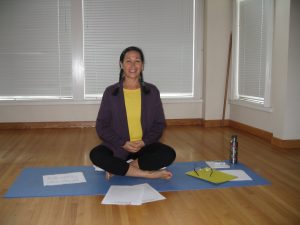Mindfulness for the Overthinking Introvert
Mindfulness is a super power and accessible to you anytime, says Dan Harris author and former ABC news anchor.
I’ve often wondered if overthinking or ruminating is more common for introverts. I think we spend more time “in our heads” thinking about things. That’s how we process new information and how we re-energize. Extroverts, on the other hand prefer to process new information by talking with someone. It’s also how they re-energize. Is one approach healthier than the other?
Of course not! Neither approach is superior; it’s just the way we are wired.
But if you are like me and have lost sleep worrying about something or missed out on an opportunity because you took too long to make a decision you may want to find ways to stop overthinking.
What exactly is rumination anyway?
According to one dictionary ruminating mean deep thinking. Put this way it doesn’t seem so bad. We all admire deep thinkers over people who don’t seem to have a serious thought in their heads.
Like me, you have probably spent time thinking about the state of the world, about the forest fires burning in California and the Amazon jungle, or the huge pile of plastic that is floating around in the Pacific Ocean. I hate to admit it but I have spent sleepless nights laying awake worrying about these things. Thinks I really can’t do much about, at least not while I’m trying to sleep.
The end result, apart from not sleeping, has been an increase in feeling anxious and scared.
Yes, rumination does have a negative side and it can lead to anxiety and depression if we don’t become aware of how our ruminating is hurting us. And it can lead to isolation if you spend so much time in your head that it prevents you from spending time with other people.
Are introverts prone to overthinking.
According to scientists, the two areas of the brain associated with overthinking — the frontal cortex and Broca’s area — are very active in introverts. The frontal cortex is the part of the brain responsible for remembering, planning, decision-making, and problem-solving, while Broca’s area is associated with self-talk.
Researchers found that it didn’t matter whether introverts were in a resting state or engaged in a task — they all showed more brain activity than the extroverts. This means introverts may process more information than extroverts per second, which helps explain why introverts are prone to overthinking. !
So, how to stop yourself from ruminating/worrying?
One way is to try and stop the worrying thoughts. Easier said than done but mindfulness really is a superpower and a set of skills that can be learned fairly easily.
What is mindfulness?
“Mindfulness is “moment to moment awareness” wrote Jon Kabat-Zinn in his groundbreaking book, Full Catastrophe Living: Using the Wisdom of Your Body and Mind to Face Stress, Pain and Illness.
There are different ways to learn how to be mindful. Some years ago, I had high blood pressure and signed up for an 8-week Mindfulness Based Stress Reduction (MBSR) course taught by psychologist Marian Smith in Vancouver. After the course and practicing mindfulness regularly for a short period of time my BP was back to normal. MBSR is modeled after the course that Jon Kabat-Zinn developed at the University of Massachusetts Medical School.
There are many ways to learn mindfulness meditation both on-line and in person.
One of the most successful examples of how the use of mindfulness provides tangible benefits comes from Google in the form of the Search Inside Yourself (SIY) program. What began as the vision of Google engineer Chade-Meng Tan back in 2007 has now become a worldwide phenomenon. SIY is available to individuals, organizations and communities in 50 countries around the world. The course is based on the best-selling book: Search Inside Yourself: The Unexpected Path to Achieving Success, Happiness (and world peace) by Chade-Meng Tan.
If you are an introvert who would like to lead a more mindful life you have many options to chose from. Do a bit of research and pick one to start with. Maybe try taking 3 deep breaths when you are feeling overwhelmed. Or sign up for a mindfulness mediation course on-line or in person.
One final suggestion, try not to spend too much time thinking about which one approach might work for you. All are proven to be beneficial.
Cheers!
@lesleyauthor

